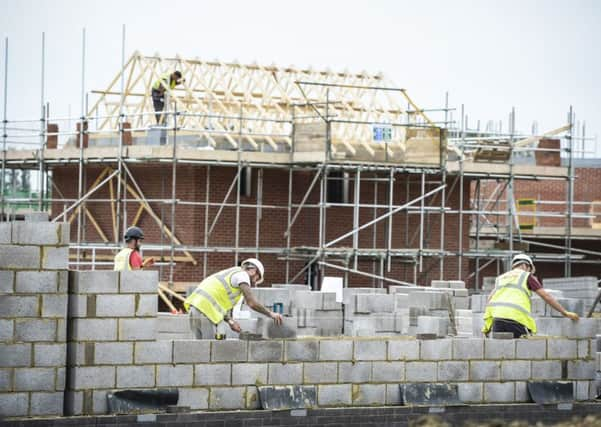Building industry warns on impact of hard Brexit as skills shortage worsens


Latest research from the Federation of Master Builders (FMB) claims that the skills shortage in the industry has now spread beyond bricklayers and carpenters to other key trades, with half of firms reporting difficulties hiring roofers, with the shortage of electricians and plasterers are at their highest point in four years.
This comes against the backdrop of the SME construction sector having experienced fifteen consecutive quarters of growth.
Advertisement
Hide AdAdvertisement
Hide AdBrian Berry, chief executive of the FMB, said: “We’ve been experiencing a severe shortage of bricklayers and carpenters for quite some time – these latest statistics show that skills shortages are now seeping into other key trades such as roofers and plumbers.
“Indeed, of the 15 key trades and occupations we monitor, 40 per cent show skills shortages at their highest point since we started to feel the effects of the skills crisis in 2013 when the industry bounced back post-downturn. This growing skills deficit is driving up costs for small firms and simultaneously adding to the pressure being felt by soaring material prices linked to the weaker pound.”
Mr Berry called upon the Government to ensure that the immigration system replaces the free movement of people to serve the key sectors of construction and house building, one which is heavily reliant on skilled labour from the EU. Currently 12 per cent of the British construction workforce is of non-UK origin, with the industry as a whole representing around 7 per cent of UK GDP.
“It is in no one’s interest to pull the rug out from under the sector by introducing an inflexible and unresponsive immigration system,” he said.
Advertisement
Hide AdAdvertisement
Hide Ad“On a more positive note, construction SMEs reported steady growth in the final three months of 2016, capping off a generally positive year for the industry. In particular, demand for private refurbishment work was robust throughout 2016 and builders expect workloads to grow in the first three months of 2017.”